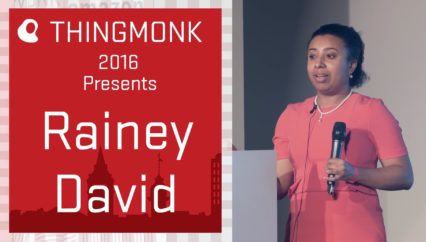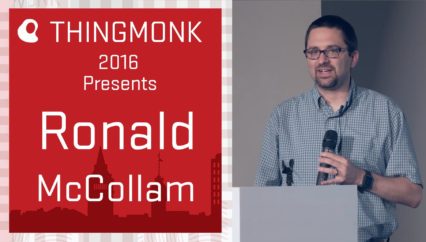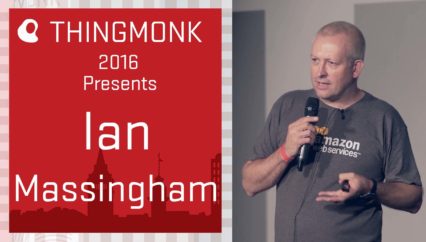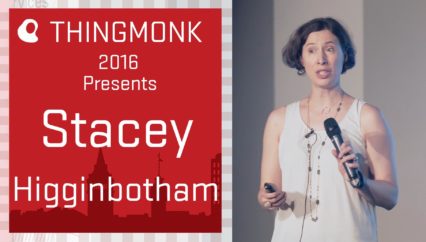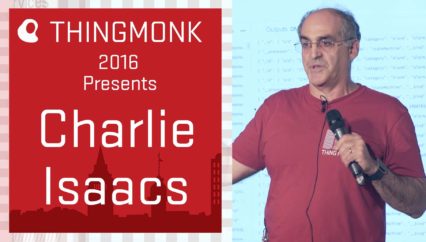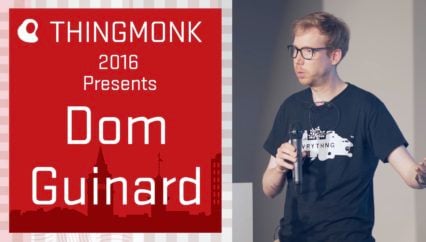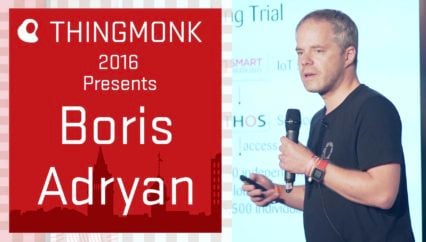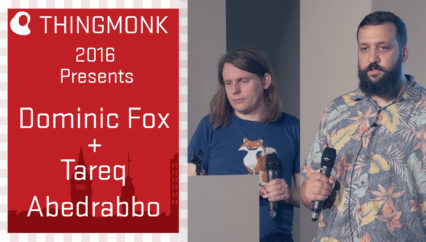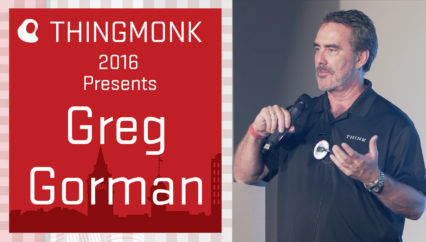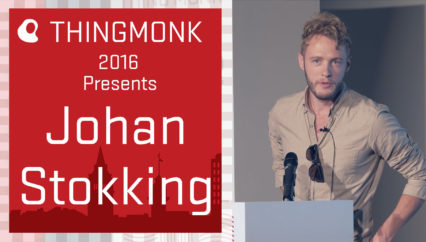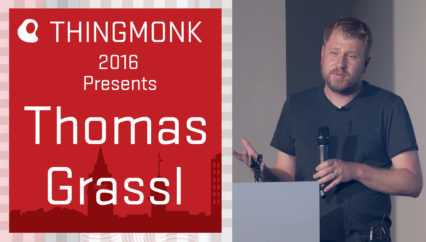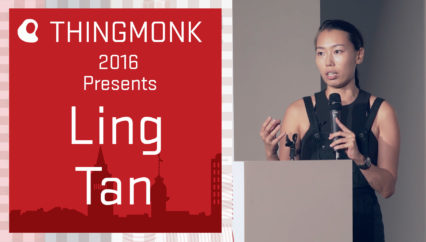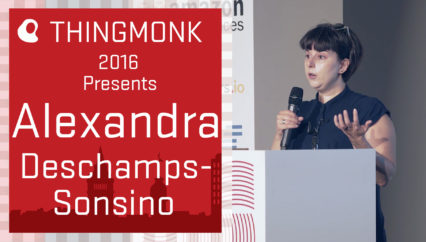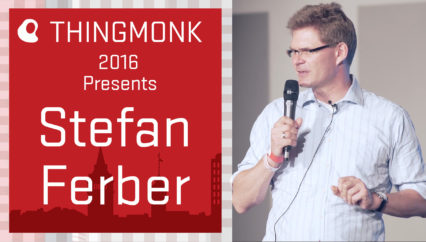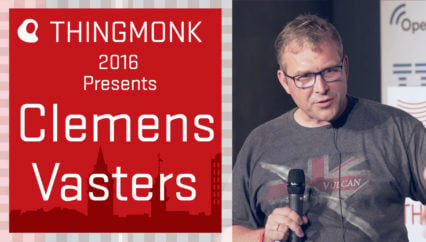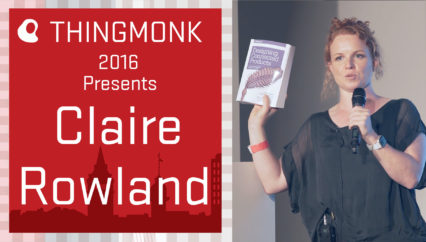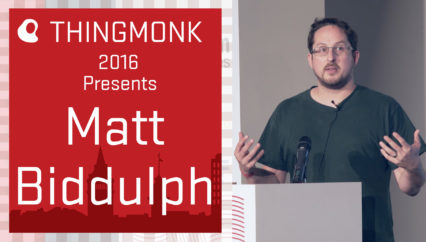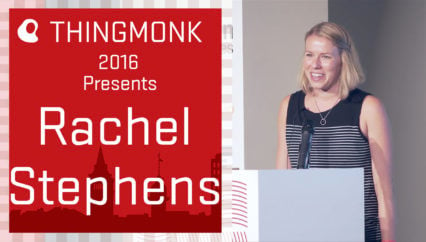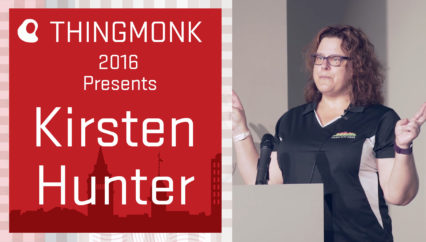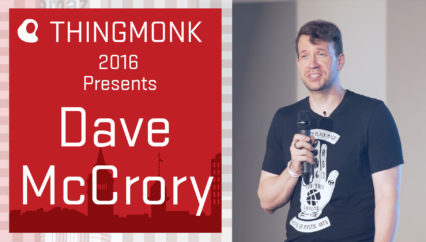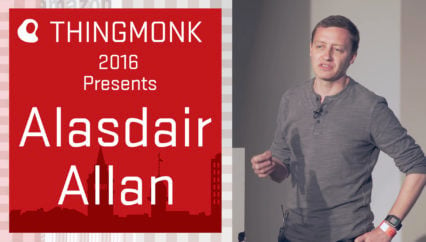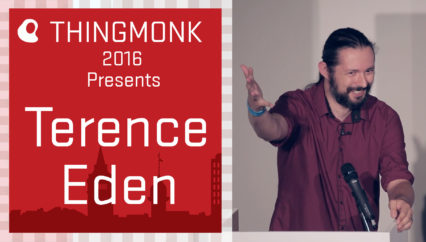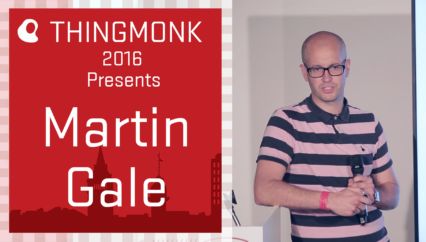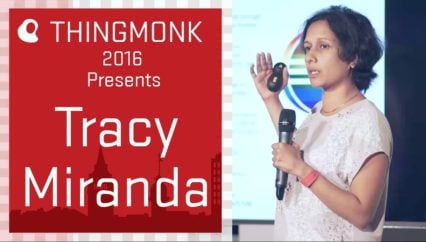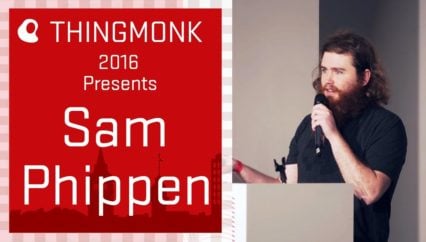Yodit Stanton, data nerd, ThingMonk regular and fully paid up member of the London IoT scene also happens to be the founder and CEO of OpenSensors.io who sponsored the ThingMonk diversity scholarship this year. Enabling 21 members of underrepresented communities to attend the conference. She kicked off her talk by extending a warm welcome to the scholars in attendance as a result of her direct patronage which has allowed Redmonk to further extend a program that has been quietly running since the conference began. Challenging the scholars to take this opportunity as far as possible she said ‘This is not a free ticket…this is actually a commitment for life.’ Welcome to the community, scholars!
OpenSensors.io is a community data sharing platform that also creates revenue by enabling private enterprise sensor networks. Yodit explained that like opensource, open data publishing has to have clear licensing terms. The licence might stipulate that people who use the data must credit whoever is publishing it (this is called attribution). Or that people who mix the data with other data have to also release the results as open data (this is called share-alike). The opportunity to share data is important to IoT development not only as a way of mitigating the resource and cost implications of sensor deployment. But as Yodit points out shared data can provide information matrices that help people to make better sense of the world around them.
Yodit presented some use cases to illustrate her notion that non trivial IoT deploys are actually an AR exercise. Talking about a community project to help communities around Heathrow better understand the implications of air and noise pollution and the planning impact of the 3rd Runway. Deploying sensors in homes and sharing the data resulted in a wide scale environmental review. Other examples included using data to organise space in architectural planning and to aid new developments and town planning. These examples demonstrate the scope of open data to augment our view of reality.
Sharing some lessons learned from these projects Yodit challenged developers to consider how to create dashboards so that regular people can make sense of the data. To think about how a sensor deployment project can be useful or beneficial. To question if an application will actually solve problems that people care about. Insisting that no one cares about platforms Yodit believes the most important thing is to find and create community.
blog.opensensors.io
https://university.opensensors.io/university/
https://github.com/OpenSensorsIO
